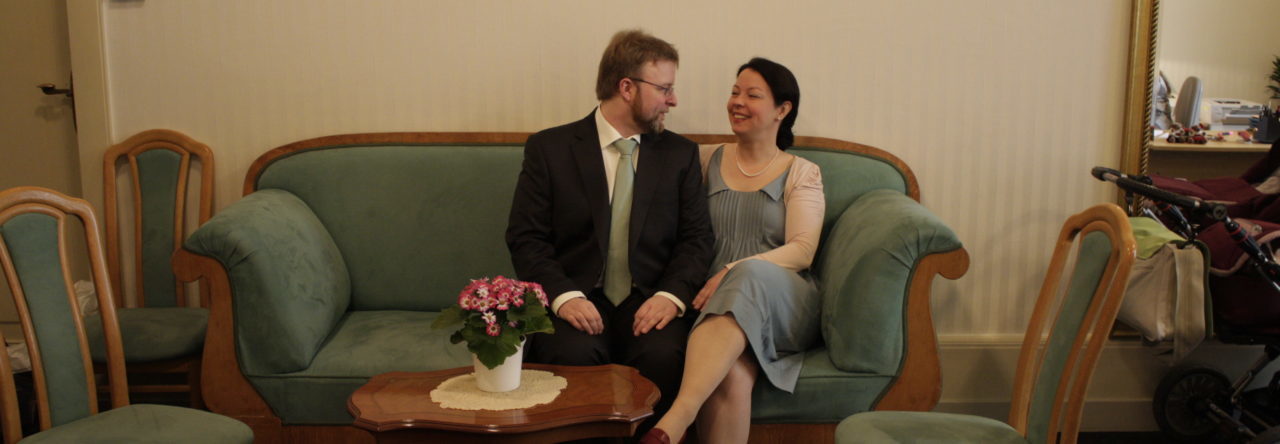[1] When she started to study the topic, Deborah Lipstadt writes in the Preface to Denying the Holocaust, few people thought the effort was warranted; the idea that somebody would take holocaust deniers seriously obviously seemed strange to them.
To me that was, in a way, the most surprising thing in the whole book. Holocaust denial and antisemitism have been from the very start a part of post-war german culture. Writer Erich Kästner observed how germans during the reeducation period would insist that the pictures of emaciated corpses taken in liberated concentration camps were merely “allied propaganda”. In his book Notabene 45 Kästner quoted an american officer who said “Of course we will rebuild the country with the help of former nazis collaborators.” [2]. The officer added something to the effect of “who else is there”.
Who else, indeed. Heinrich Lübke, head of the west german state from ’59 to ’69 had worked during the “Third Reich” for the company that built the facilities at Peenemünde (and used KZ inmates as workforce) [3]. At the end of the sixties, during the time of the first “Grand Coalition” between social democrats and conservaties the FRG was governed by the odd couple of Willy Brandt, a Nazi opponent and Kurt Georg Kiesinger, who had been during the Nazi era a propagandist in the foreign office under Ribbentrop [4]. Kiesinger eventually resigned after the German Democratic Republic published its “Black Book” with records of some 5000 high ranking politicans, judges, industry leaders and other public figures who had started their respective careers under Adolf Hitler. The Blackbook was quickly denounced as communist propaganda – which it was, only it was still correct, and it exposed a large number of politicans, jurists, industrial leaders etc as Nazi supporters and former members of the NSDAP. Later there was the Bitburg Affair, Historians debate, these days we have Neo-Nazist partys in some state parliaments and in between there has been hardly a year in which nobody either denied or justified the holocaust in public. Since not even the democratic insitutions could extricate themselves from their Nazi roots it would have never occured to me that holocaust deniers could be looked at merely as “kooks” who could be easily ignored.
However “Denying the holocaust” is a book about the USA and for an american audience. Deborah Lipstadt traces holocaust denial back to it’s origins from World War I revisionism- originally a school of thought by serious historians who would have preferred a isolationist position for the US in the war, but was quickly annexed by people who sought to exonerate Germany (which in the treaty of Versailles was considered to be solely culpable for the war) and maintained that the allied forces had committed far greater war crimes than the germans. When in the late 1930s and the 1940s the US again faced a choice if they should join a war in distant europe this radical brand of revisionists added antisemitism to their repertoire, either based on homegrown products like Henry Fords antijewish brochures or on stuff that had been fed to them by the Nazi propaganda machine; it portraited jews as members of a vast international conspiracy that employed both capitalism and communism to subjugate the world under jewish rule and more specifically to drive to USA to war against Germany.
From these beginnings – or so it would seem from the way Lipstadt presents her facts – holocaust denial after World War 2 was inevitable. When the self styled revisionists tried to exonerate Germany from the – horribile dictu – comparatively small infraction of starting WW I they could hardly sit by as it was brought to trial for the much greater crime of genocide against the jewish population of europe. Since they were already convinced that Germany was innocent victim of jewish machinations they now contended that no jews had been killed or at least the number of deaths had been greatly exaggerated and that those killed had been legaly executed for espionage, sabotage or treason.
Ideologically the worldview of holocaust deniers was by now pretty much complete. What followed was a shift in emphasis, as antisemitism became the goal and exonoration of germany the means, and a change in tactics. Holocaust Denial tried to move away from the fringe of self-publishing rabble rousers into the mainstream of academics and mass media. They gave themselves fancy names – but the name alone does not make a reputable “Institute” (sc. “for Historic Review”). Their publications emulated serious publications – but this was all appearances, no real substance. They claim to use historicals sources, but their quotes are either taken out of context, or misquoted, or they are complete fabrications. Their biggest success however was to establish holocaust denial as the legitimate “other side” in public discourse. Allowing holocaust deniers to disseminate their claims through newspapers, radio shows and tv programmes suddenly became a matter of “free speech”, as if the right for free speech had ever included a right to be published in all relevant media, even those with specific anti-discrimation policies (which inexplicably never seem to cover antisemitism). More important than a deep commitment to civils rights was perhaps that right wing antisemitism met with antizionism from the left. To claim that the holocaust had been somehow invented by the jews to blackmail the germans serves both sides, so ideology could not work as a safeguard (it used to be the case that right wingers and lefties disagreed with each other as a matter of principle, so you had usually one faction that was correct).
The book includes too much detail to be easily summarized in a review – which is a good thing of course, it means Deborah Lipstadt did a good and thorough job. However I have one “but”, but I think that’s a big one: Holocaust denial in Germany, and/or by Germans would have deserved much broader coverage. There’s a small chapter about the “Historikerstreit” (historians debate) but there’s no mention of, for example, Hennecke Kardel (who contented that Hitler and all leading Nazis were jews who arranged the Holocaust to discredit National Socialism) [5], Ingrid Weckert (who perpetuated in Feuerzeichen the myth of a “jewish declaration of war” against germany), the very versatile Germar Rudolf [6], who authored one of the countless bogus reports on the unfeasibility of murder in gas chambers [7] and others (it should be not suprising that the german holocaust denial scene is large and diverse, since it were germans who perpetrated the holocaust in the first place). Given the neo-nazis curious penchant for internationalism I would be surprised if the german denial scene hasn’t had some influence on it’s american counterpart.
Even so – I’m not too god a lavish praise, so I just say it’s a must-read if your at all interested in the topic. Plus it’s much more useful than History on trial, since it is a comprehensive history of a political “idea” rather than a report of a tiresome court case brought forth by a disgruntled holocaust denier.
- After I wrote about History on trial a commenter asked for a review of Denying the Holocaus, since the former is more or less a consequence of the latter. So, here’s the review. I planned to amend this with a few of my own musings about holocaust denial in germany, but I guess I’ll save this for a later blog post. So here we go.
- Kästner, Erich, Notabene 45 p.299 in: Kästner für Erwachsene, Zürich 1983. “Collaborator” might be a bit sharper than the german original “[Leute] die mit Hitler zusammengearbeitet haben”
- http://www.zeit.de/2007/30/Heinrich-Luebke?page=all
- Enzyklopädie des Holocaust, Benz/Graml/Weiß (ed.), München 1997, p. 852
- Kardel, Hennecke “Adolf Hitler, Begründer Israels”, Geneva 1974
- Rudolf habitually assumes different personalities with different “qualifications”, sometimes even within the same text where he quotes his own pen names as authorities to bolster his own argument
- while the “Rudolf-Report” was written in 1991 as “expert” testimony for Otto Ernst Remer, a holocaust denier (see http://h-ref.de/personen/rudolf-germar/rudolf-report.php), it seems that it wasn’t published as a book before 1994, so maybe the document wasn’t well known when Listadt published her book in 1993

